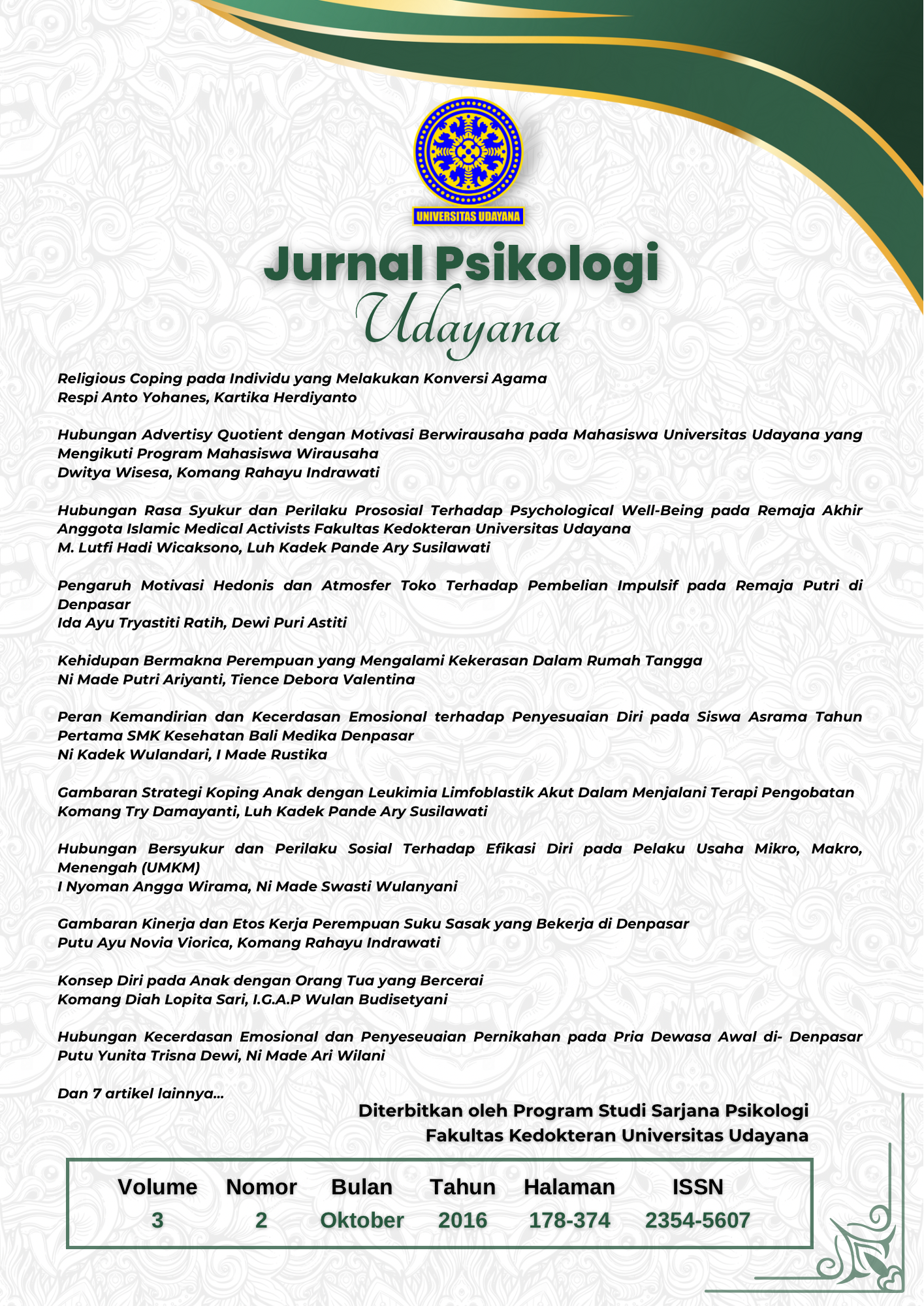Program Studi Psikologi, Fakultas Kedokteran, Universitas Udayana
Abstract
Every human being has a unique meaning of life, as well as individuals with schizotypal disorder. One characteristic of schizotypal patients is the distortion of mind that leads to something mystical (Halgin & Whitbourne, 2009), in this case it includes the ability to perform telepathy, know events in the past and future, as well as super abilities more similar to the characteristics of indigo people. The term children with special abilities includes the ability to perform telepathy, know events in the past and future, as well as super abilities more similar to the characteristics of indigo people. The term children with special abilities includes special and gifted children, such as genius children, gifted children, talented children, as well as indigo children who have a sixth sense or supernatural capability (Sunartini, 2009). Indigo people are also believed to have a purpose of life that is different from ordinary people generally. It leads to Frankl’s theory which states that purpose of life is part of the meaning of life (Bastaman, 2007). Therefore, researchers consider that the uniqueness of the meaning of life of indigo people and its association with the concept of self and distorted thinking on people with schizotypal disorder is important to investigate more deeply.This study used a type of qualitative research with case study approach. The study involved one respondent along with the support of informants. Data collection was done through observation, interviews, and the use of relevant documents. The results of the study were able to explain the meaning of the respondents’ lives tied to the aspects of meaningfulness of life assessment, the factors that affect the meaningfulness of life, factors of meaning formation, and the meaning of life deformation processes. Other findings were the respondents’ self-concepts and abnormalities which then lead to a result which indicates that the relationship between the meaning of life, self-concept, and abnormalities.
Keywords: indigo, the meaning of life, self-concept, schizotypal disorder.
Downloads
Download data is not yet available.
Published
2016-10-01
How to Cite
FITRIANTI, Eka Indah; HERDIYANTO, Yohanes Kartika.
Program Studi Psikologi, Fakultas Kedokteran, Universitas Udayana.
Jurnal Psikologi Udayana, [S.l.], v. 3, n. 2, oct. 2016.
ISSN 2654-4024.
Available at: <https://ojs.unud.ac.id/index.php/psikologi/article/view/25245>. Date accessed: 23 feb. 2026.
doi: https://doi.org/10.24843/JPU.2016.v03.i02.p13.
Issue
Section
Articles
Authors who publish with this journal agree to the following terms:
- Authors retain copyright and grant the journal right of first publication with the work simultaneously licensed under a Creative Commons Attribution-ShareAlike 4.0 International License that allows others to share the work with an acknowledgement of the works authorship and initial publication in this journal.
- Authors are able to enter into separate, additional contractual arrangements for the non-exclusive distribution of the journals published version of the work (e.g., post it to an institutional repository or publish it in a book), with an acknowledgement of its initial publication in this journal.
- Authors are permitted and encouraged to post their work online (e.g., in institutional repositories or on their website) prior to and during the submission process, as it can lead to productive exchanges, as well as earlier and greater citation of published work (See The Effect of Open Access).













